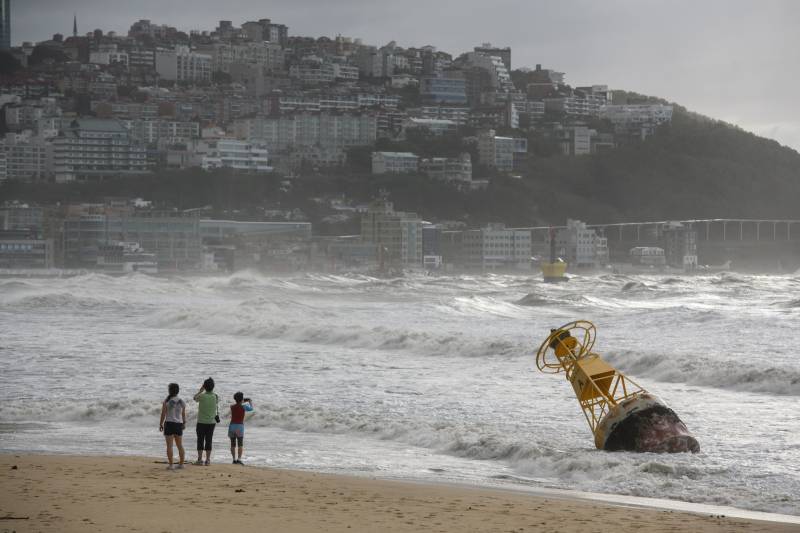Typhoon Maysak drenches North and South Korea

Stay tuned with 24 News HD Android App

A powerful typhoon drenched both Koreas on Thursday, killing at least one person in the South and inundating streets across a port in the North as it churned its way up the peninsula.
Typhoon Maysak -- named after a Cambodian word for a type of tree -- made landfall in Busan on the southern coast, packing gusts of up to 140 kilometres per hour (87 miles per hour), knocking down traffic lights and trees and flooding streets.
A woman was killed after a strong gust shattered her apartment window in the city, while more than 2,200 people were evacuated to temporary shelters and around 120,000 homes left without power across southern parts of the peninsula and on Jeju Island.
The storm made its way northwards, passing into the Sea of Japan, known as the East Sea in Korea, before making a second landfall around 0200 GMT at Kimchaek in North Korea.
Natural disasters tend to have a greater impact in the North due to its creaking infrastructure, and the country is vulnerable to flooding as many mountains and hills have long been deforested.
The typhoon brought heavy downpours across the North, with total rainfall in the 15 hours to 0300 GMT Thursday reaching 385 millimetres in the port town of Wonsan on its east coast.
Pyongyang's state media have been on high alert, carrying live broadcasts of the situation, with one showing a reporter standing in a street inundated with water in the port town.
But authorities lifted their typhoon warning as the storm weakened and moved towards China.
"The typhoon will pass through Musan and leave our country," a meteorological officer told Korean Central Television. "I don't expect any effects."
In Japan, rescuers were searching for a cargo ship with 43 people on board and reportedly carrying 5,800 cows.
The Gulf Livestock 1 issued a distress call on Tuesday night as strong winds and heavy rain from Maysak lashed the East China Sea.
Japan's coast guard said one person had so far been found during the search, which involved four vessels and several planes.
Maysak is the second typhoon in a week to hit the Korean peninsula.
North Korean leader Kim Jong Un last week visited a farming region hit by Typhoon Bavi and expressed relief the damage was "smaller than expected".
Meteorologists say another typhoon -- Typhoon Haishen -- is approaching and will make landfall on the peninsula Monday morning, forecasting strong gusts of 144 kilometres per hour (89 miles per hour).
